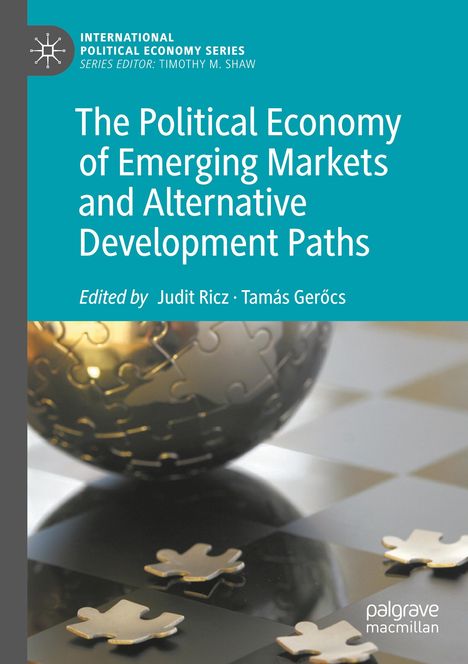The Political Economy of Emerging Markets and Alternative Development Paths, Kartoniert / Broschiert
The Political Economy of Emerging Markets and Alternative Development Paths
Buch
- Herausgeber:
- Tamás Ger¿cs, Judit Ricz
- Verlag:
- Springer International Publishing, 02/2024
- Einband:
- Kartoniert / Broschiert, Paperback
- Sprache:
- Englisch
- ISBN-13:
- 9783031207044
- Artikelnummer:
- 11769240
- Umfang:
- 356 Seiten
- Nummer der Auflage:
- 24001
- Ausgabe:
- 1st edition 2023
- Gewicht:
- 461 g
- Maße:
- 210 x 148 mm
- Stärke:
- 20 mm
- Erscheinungstermin:
- 18.2.2024
- Hinweis
-
Achtung: Artikel ist nicht in deutscher Sprache!
Weitere Ausgaben von The Political Economy of Emerging Markets and Alternative Development Paths |
Preis |
|---|
Klappentext
This volume is the continuation of our research on economic and developmental policy-making in the global semi-periphery in the post-crisis cycle (see our two recently published volumes titled Market-Liberalism and Economic Patriotism in Capitalist Systems edited by Ger cs and Szanyi, 2019, Palgrave Macmillan and The Post-Crisis Developmental State Perspectives from the Global Periphery edited by Ger cs and Ricz, 2021). Our new volume aims to be a contribution to the analysis of emerging market economies alternative development trajectories, as we explore the new perspectives on semi-peripheral dependent development since the Global Financial Crisis and especially amidst the new global pandemic, the COVID-19.The scope of comparative capitalism research has also been altered accordingly to include the analysis of emerging economies outside the core of the world system, and to make intertemporal comparisons possible (such as to define and characterise historical wavesof state capitalism). Still, we are convinced that to better understand the current wave of state capitalism and to explore its national varieties there is a need to critically reconsider existing theoretical approaches and methodologies, and to search for new ones, if necessary.
This book aims to be a contribution to the analysis of emerging market economies' alternative development trajectories and explores new perspectives on semi-peripheral dependent development, especially amidst COVID-19.

